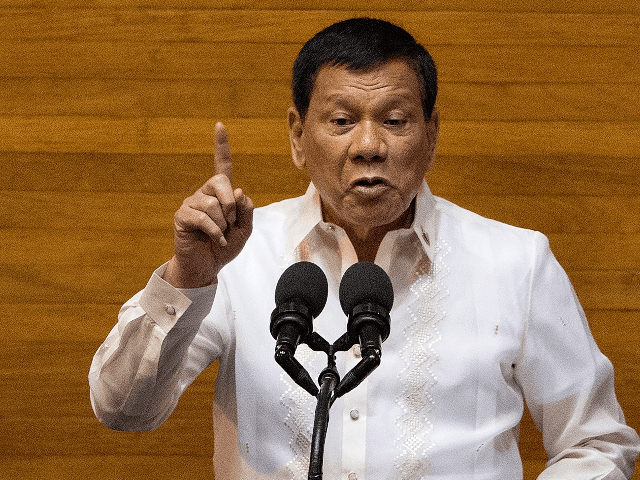In a virtual speech at the 75th annual U.N. general assembly on Tuesday, Philippine President Rodrigo Duterte said that his country “firmly rejects” Beijing’s recent “attempts to undermine” international law by illegally encroaching upon other nations’ sovereign territory in the South China Sea.
“We must remain mindful of our obligation and commitment to the charter of the United Nations. And as is amplified by the 1982 Manila declaration on the peaceful settlement of international disputes, the Philippines affirms that commitment in the South China Sea in accordance with UNCLOS [U.N. Convention on the Law of the Sea] and the 2016 arbitral award,” Duterte said.
He referred to a 2016 ruling by an independent arbitral tribunal established under UNCLOS, which found that Beijing’s claims to nearly the entirety of the South China Sea were illegal.
“The award is now part of international law. Beyond compromise and beyond the reach of passing governments to dilute, diminish, or abandon. We firmly reject attempts to undermine it. We welcome an increasing number of states that have come in support of the award and what it stands for,” the president added.
Beijing rejected the 2016 ruling and has continued to press forward with its illegal claims to nearly all of the sea since then. Over the past six months, China has taken advantage of the distraction caused by the ongoing coronavirus pandemic to ramp up its illegal activity in the South China Sea.
The Philippine Foreign Ministry filed a diplomatic protest with Beijing on August 20 over the China Coast Guard’s “illegal confiscation” of Filipino fishing equipment near the Philippines’ Scarborough Shoal in May.
The Philippine Department of Foreign Affairs issued a statement saying it “also resolutely objected” to the Chinese coast guard’s “continuing illicit issuances of radio challenges on Philippine aircraft conducting legitimate regular maritime patrols in the West Philippine Sea,” the Philippines’ name for the body of water.
Philippine Defense Secretary Delfin Lorenzana issued a press statement on the incident castigating China for violating the Philippines’ exclusive economic zone.
“That area is within our EEZ [exclusive economic zone]. Their [China’s] so-called historical rights over an area enclosed by their 9-[dash] line doesn’t exist [sic] except in their imaginations,” he said, referring to a so-called “nine-dash line” map that Beijing created to bolster its illegal claims in the South China Sea. The dashes drawn by China encircle nearly the entire sea and slice into other nations’ territory.
“Our fishermen are within our EEZ and likewise our ships and planes conduct patrol sorties within our area,” Lorenzana continued. “They [China] are the ones who have been doing provocations by illegally occupying some features within our EEZ. Hence they have no right to claim they are enforcing their laws.”
In recent years, China has illegally occupied and built military outposts on other nations’ reefs and islets in the South China Sea. In July, China’s People’s Liberation Army (PLA) deployed eight fighter jets to Woody Island, part of Vietnam’s Paracel Islands, where Beijing has built its largest artificial military installation in the South China Sea. Beijing has previously equipped the occupied island with “an airstrip, hangars, and a deployment of HQ-9 surface-to-air missile batteries.”

COMMENTS
Please let us know if you're having issues with commenting.